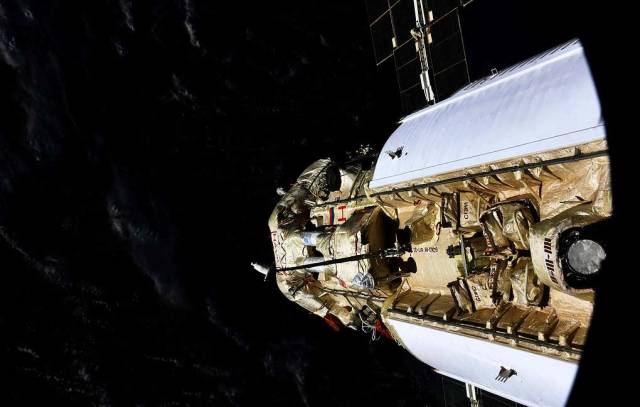To do this, a space greenhouse will be delivered to the Nauka module. In the first experiment, Peking cabbage will be planted
MOSCOW, August 9. /TASS/. The Vitacycle-T experiment, which involves growing plants on an industrial scale in space, will be held in the Science module on the ISS. This was announced in an interview with TASS by Yuri Smirnov, head of the laboratory for the development and implementation of biomedical programs of the IMBP RAS.
"The Vitacycle-T experiment is the creation of a greenhouse that allows growing plants on an industrial scale," Smirnov said.
According to him, a space greenhouse, which resembles a snail in profile, will be delivered to the ISS for the experiment. "With a certain frequency, the cosmonaut lays a strip with seeds in the greenhouse. Then he scrolls the drum, after some time lays the next strip. Every certain period of time, an astronaut can harvest crops. In the first experiment, for example, Peking cabbage will be grown, " Smirnov explained.
Some of the plants will be sent to Earth for research. "Naturally, no one will forbid astronauts to use the resulting crop grown during a space flight in nutrition," the expert stressed.
In the future, astronauts will also be able to plant cereals, legumes, and dwarf tomatoes.
About the module "Science"
The multi-purpose laboratory module "Science" was launched from the Baikonur Cosmodrome on July 21. On Thursday, the module docked to the ISS. It is intended for the implementation of the Russian program of scientific and applied research and experiments. After the MLM is put into operation, the Russian segment will receive additional volumes for the arrangement of workplaces and cargo storage, the placement of equipment for the regeneration of water and oxygen.
The Nauka module is equipped with a second toilet for the Russian segment, a cabin for the third crew member of the Russian Federation, as well as a European ERA manipulator, which will allow performing some work without going into outer space.

